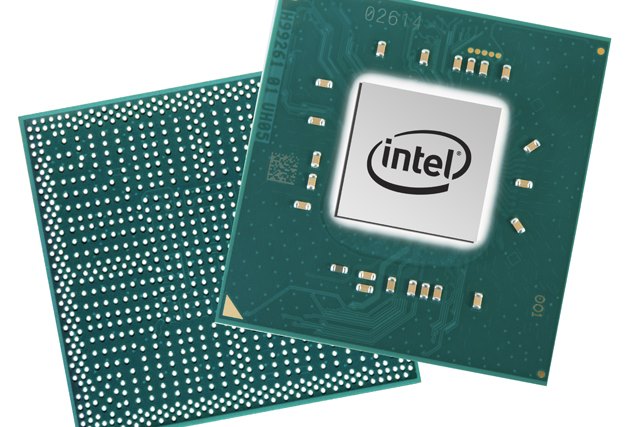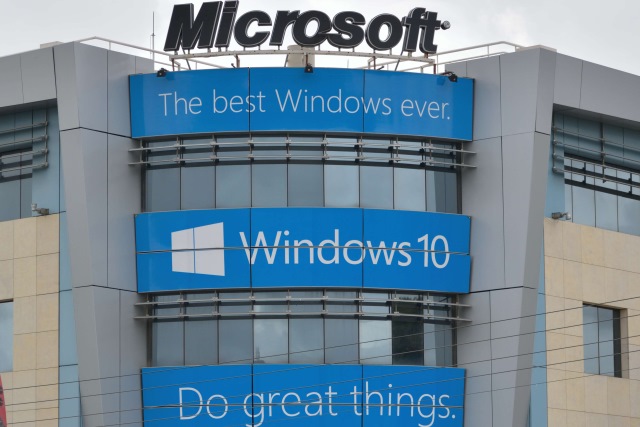
How to check if your Windows or Linux system is vulnerable to Microarchitectural Data Sampling (MDS) attacks
Intel yesterday disclosed a new group of Microarchitectural Data Sampling (MDS) hardware vulnerabilities that affect its CPUs.
Rogue In-Flight Data Load (RIDL), Fallout, and ZombieLoad speculative execution attacks are related to Spectre and Meltdown which were discovered last year, and allow attackers to leak in-flight data from CPU-internal buffers (Line Fill Buffers, Load Ports, Store Buffers), including data never stored in CPU caches.

Security researchers discover seven more speculative execution attacks like Spectre and Meltdown
One of the biggest security stories of 2018 has been the discovery of the Meltdown and Spectre chip flaws. Known as speculative execution exploits, the flaws make it possible to steal potentially sensitive information and there has been an on-going battle to issue patches wherever possible.
Just as things were starting to die down a little, security researchers have revealed details of no fewer than seven more speculative execution attacks. While some of these attack vectors have already been mitigated against, this is not the case for all of them.

Researchers develop SafeSpec to overcome vulnerabilities like Spectre and Meltdown
Computer scientists from the University of California, the College of William and Mary, and Binghamton University have published a paper detailing a new "design principle" that avoids speculative execution vulnerabilities.
Researchers says that the SafeSpec model supports "speculation in a way that is immune to the sidechannel leakage necessary for attacks such as Meltdown and Spectre". Importantly, the design also avoids the problems associated with other Meltdown/Spectre fixes.

CVE-2018-3665: Floating Point Lazy State Save/Restore vulnerability affects Intel chips
There has been something of a spate of chip vulnerability discoveries recently, and now another one has emerged. Known as Floating Point Lazy State Save/Restore, the security flaw (CVE-2018-3665) is found in Intel Core and Xeon processors and it is another speculative execution vulnerability in a similar vein to Spectre.
The security flaw takes advantage of one of the ways the Linux kernel saves and restores the state of the Floating Point Unit (FPU) when switching tasks -- specifically the Lazy FPU Restore scheme. Malware or malicious users can take advantage of the vulnerability to grab encryption keys. Linux kernel from version 4.9 and upwards, as well as modern versions of Windows and Windows Server are not affected.

Red Hat responds to Speculative Store Bypass and helps explain Variant 4 chip vulnerability
As news of yet another chip vulnerability creeps out, computer users, businesses and organizations around the world are trying to assess how the latest bug affects them. To help its users and others to understand what the Speculative Store Bypass/Variant 4 vulnerability means, Red Hat has issued advisories and an explanatory video.
The company also reveals exactly which of its Linux builds are affected by the security flaw and what steps can be taken as mitigation. In addition to this, Red Hat has put together a number of resources that help to "provide more context around this vulnerability from an open source technology perspective".

Spectre and Meltdown variant 4: Microsoft, Google and Intel reveal new Speculative Store Bypass chip vulnerability
Just when you thought you could forget about the Spectre and Meltdown chip vulnerabilities, yet another variant has been discovered. Known as Speculative Store Bypass, the vulnerability affects chips from AMD and Intel, as well as Power 8, Power 9 and System z processors.
The vulnerability has been assigned CVE-2018-3639, and successful exploitation would mean that an attacker could gain access to data. The attack can be carried out through a "language-based runtime environment" such as JavaScript. Some patches exist while others are in development, and they include the same performance hit associated with patches for the previous vulnerabilities.

Microsoft's Meltdown patch for Windows 10 has a 'fatal flaw'
If you've not updated to Windows 10 April 2018 Update but you have installed Microsoft's Meltdown patches from a few months ago, your computer is vulnerable to a "fatal flaw".
This is not the first time a patch for the Meltdown vulnerability has led to problems with Windows, but previously it was Windows 7 and Windows Server 2008 that were affected. A security researcher found that Microsoft's patch for Windows 10 "undermined the mitigation", and while the problem has been fixed in the April 2018, the company is still working on backporting an updated patch for older versions of Windows 10.

Exploit emerges for Microsoft's problematic Meltdown patch for Windows 7 and Server 2008
For Microsoft, the patches it produced for the Meltdown chip vulnerability proved to be just about as problematic as the original issue, further reducing the security of systems. Following the emergence of an exploit for the Windows-maker's first patch, users are advised to hurry up and install the patch-for-a-patch that was later released.
Last month, Ulf Frisk from Sweden revealed that Microsoft's Meltdown patches were making things worse for Windows 7 and Windows Server 2008, making it possible to read and write kernel memory and gain total control over the system. Now code has been posted online that can be used to exploit the "Total Meltdown" vulnerability.

Intel: some processors will never receive Meltdown and Spectre patches
With little fanfare, Intel has revealed that some processors will simply never receive microcode updates that will patch against the Meltdown and Spectre vulnerabilities.
In a document entitled Microcode Revision Guidelines, the chip-maker says that a wide range of processor families -- equating to over 200 CPUs -- will not receive any more updates. While the majority of the affected chips were on sale between 2007 and 2011, it's safe to assume that a large proportion of them are still in use, meaning that a lot of systems will remain unprotected.

Microsoft releases update that fixes problematic Meltdown patch
As if the Meltdown and Spectre chip vulnerabilities weren't bad enough in their own right, the patches designed to fix them caused a further series of problems. A Swedish researcher recently discovered that Microsoft's Meltdown fixes lowered security in Windows 7 and Windows Server 2008 R2, and now the company has issued a fix.
As the new patch is being released outside of the usual schedule, it is indicative of the importance of the security update. KB4100480 is a kernel update for Windows 7 Service Pack 1 and Windows Server 2008 R2 Service Pack 1 that addresses CVE-2018-1038 problems.

Meltdown patches from Microsoft made Windows 7 and Windows Server 2008 less secure
If you're running Windows 7 and you've not yet installed the March updates, now is very much the time to do so. It turns out that the Meltdown patches released in January and February actually opened up a security hole in both Windows 7 and Windows Server 2008 R2.
A Swedish security researcher found that the patches changed access permissions for kernel memory, making it possible for anyone to read from and write to user processes, gain admin rights and modify data in memory.

AMD admits to new batch of critical processor flaws and promises fixes
AMD has confirmed that some of its processors contain vulnerabilities after they were found by CTS Labs researchers. In all, 13 critical flaws were found, including RyzenFall, MasterKey, Fallout and Chimera. They affect a range of AMD products.
The flaws are not dissimilar to the previous Meltdown/Spectre vulnerabilities, and CTS Labs gave AMD just 24 hours' notice before going public. The chipmaker says that patches are on the way, and tries to suggest that the vulnerabilities are not a cause for major concern.

Microsoft launches bounty program for speculative execution side channel vulnerabilities
Microsoft has launched a bug bounty program that will reward anyone who finds the next Meltdown or Spectre vulnerability. Known as speculative execution side channel vulnerabilities, Microsoft is willing to reward anyone who reports bugs that could cause problems like earlier in the year.
The rewards on offer range from $5,000 up to $250,000 depending on the severity of the vulnerability, and the bounty program runs until the end of 2018. Microsoft says that it will operate under the principles of coordinated vulnerability disclosure.

Microsoft removes AV compatibility requirements for Windows 10 security updates
In the fallout from the revelations about the Spectre and Meltdown vulnerabilities -- and the ensuing chaos relating to patches for the security problems -- Microsoft blocked security updates for Windows 10 users with antivirus software whose compatibility with patches was not known.
Two months after making this decision, Microsoft has changed course and said that updates can roll out to everyone once again. The company says this is a result of working with antivirus partners and patches should no longer lead to problems in most cases.

Microsoft details steps being taken to address Spectre and Meltdown vulnerabilities
The Spectre and Meltdown vulnerabilities affected millions of processors around the world, and the "fixes" that followed compounded the problems with reports of the patches bricking AMD PCs, and Ubuntu systems, and causing major slowdowns. Intel even told customers to stop installing the patches due to 'unpredictable' reboot issues.
In a new blog post, Microsoft provides an update on the state of the situation, and has some good news for Windows 1o users.
